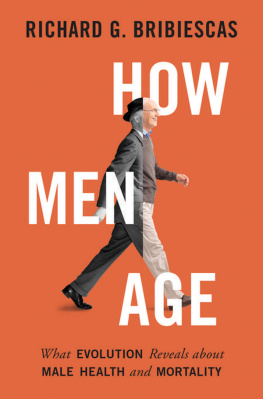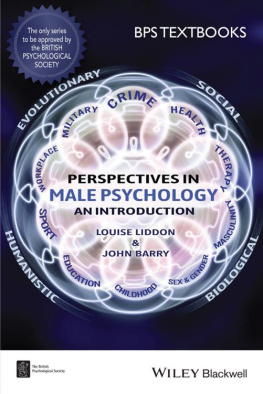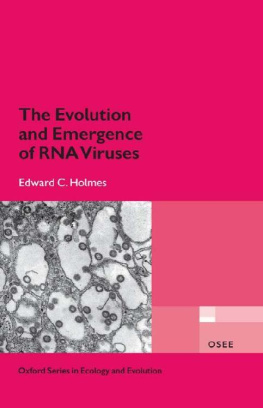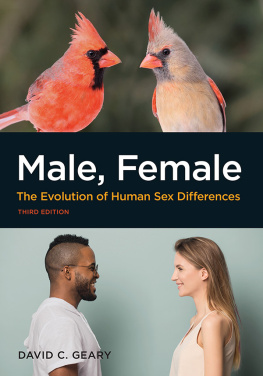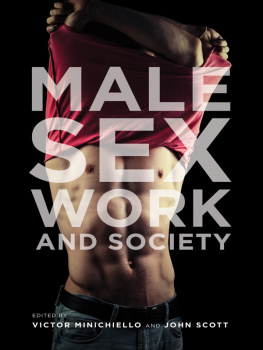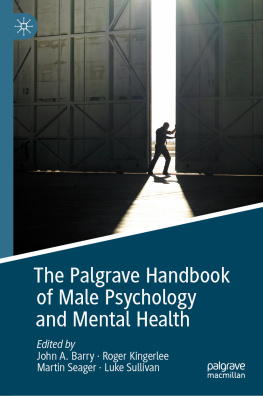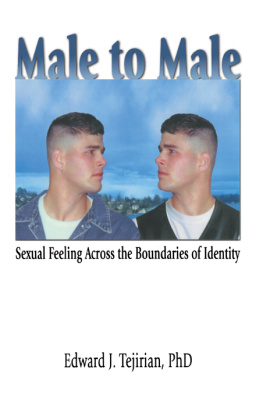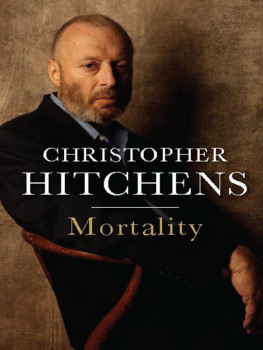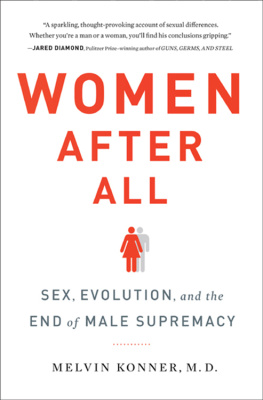Bribiescas - How men age - what evolution reveals about male health and mortality
Here you can read online Bribiescas - How men age - what evolution reveals about male health and mortality full text of the book (entire story) in english for free. Download pdf and epub, get meaning, cover and reviews about this ebook. year: 2016, publisher: Princeton University Press, genre: Romance novel. Description of the work, (preface) as well as reviews are available. Best literature library LitArk.com created for fans of good reading and offers a wide selection of genres:
Romance novel
Science fiction
Adventure
Detective
Science
History
Home and family
Prose
Art
Politics
Computer
Non-fiction
Religion
Business
Children
Humor
Choose a favorite category and find really read worthwhile books. Enjoy immersion in the world of imagination, feel the emotions of the characters or learn something new for yourself, make an fascinating discovery.
- Book:How men age - what evolution reveals about male health and mortality
- Author:
- Publisher:Princeton University Press
- Genre:
- Year:2016
- Rating:4 / 5
- Favourites:Add to favourites
- Your mark:
- 80
- 1
- 2
- 3
- 4
- 5
How men age - what evolution reveals about male health and mortality: summary, description and annotation
We offer to read an annotation, description, summary or preface (depends on what the author of the book "How men age - what evolution reveals about male health and mortality" wrote himself). If you haven't found the necessary information about the book — write in the comments, we will try to find it.
Bribiescas: author's other books
Who wrote How men age - what evolution reveals about male health and mortality? Find out the surname, the name of the author of the book and a list of all author's works by series.
How men age - what evolution reveals about male health and mortality — read online for free the complete book (whole text) full work
Below is the text of the book, divided by pages. System saving the place of the last page read, allows you to conveniently read the book "How men age - what evolution reveals about male health and mortality" online for free, without having to search again every time where you left off. Put a bookmark, and you can go to the page where you finished reading at any time.
Font size:
Interval:
Bookmark:

HOW MEN AGE
HOW MEN AGE
WhatEVOLUTIONReveals aboutMALE HEALTHandMORTALITY
RICHARD G. BRIBIESCAS
Princeton University Press
Princeton and Oxford
Copyright 2016 by Princeton University Press
Published by Princeton University Press,
41 William Street, Princeton, New Jersey 08540
In the United Kingdom: Princeton University Press,
6 Oxford Street, Woodstock, Oxfordshire OX20 1TR
press.princeton.edu
Jacket images: left half courtesy of Getty Images; right half courtesy of Thinkstock
All Rights Reserved
Library of Congress Cataloging-in-Publication Data
Names: Bribiescas, Richard G., author.
Title: How men age : what evolution reveals about male health and mortality / Richard G. Bribiescas.
Description: Princeton, New Jersey : Princeton University Press, [2016] | Includes bibliographical references and index.
Identifiers: LCCN 2016014947 | ISBN 9780691160634 (hardback : alk. paper)
Subjects: | MESH: Mens Health | Aging | Menpsychology | Biological Evolution | Mortality
Classification: LCC RA777.8 | NLM WA 306 | DDC 613/.04234dc23 LC record available at https://lccn.loc.gov/2016014947
British Library Cataloging-in-Publication Data is available
This book has been composed in Adobe Garamond Pro and Trade Gothic LT Std
Printed on acid-free paper.
Printed in the United States of America
10 9 8 7 6 5 4 3 2 1
To my wife, Audrey.
I am fortunate and blessed to grow old with you.
CONTENTS
ACKNOWLEDGMENTS
This project is a follow-up to my first book, published in 2006, Men: Evolutionary and Life History. Upon completion of that work, I felt each chapter could easily be developed into a book of its own. Among the topics that I wished to tackle in greater depth, aging was at the top of the list. The growing amount of gray in my beard and hair likely played a role in stoking my interest. Friends and colleagues encouraged me to pursue this project from its first inception. I would like to thank my editor at Princeton University Press, Alison Kalett. From our first conversation over coffee at the Human Biology Association meetings a few years ago to our discussions in my office at Yale in 2013, she has been a staunch advocate and supporter of this work. Her guidance and encouragement have been indispensable.
Among those who provided deserved and constructive criticism as well as support are Brenda Bradley, Mark Eggerman, Eduardo Fernandez-Duque, Andrew Hill, Marcia Inhorn, Catherine Panter-Brick, Alison Richard, Eric Sargis, Claudia Valeggia, and Brian Wood. Ph.D. students, past and present, have been constant sources of inspiration and energy. Among those are Dorsa Amir, Stephanie Anestis, Erin Burke, Kate Clancy, Jessica Minor, Michael Muehlenbein, and Anglica Torres. Other Ph.D. students and scholars who have made contributions through their dedication and research in the Yale Reproductive Ecology Laboratory include Gary Aronsen, Kendall Arslanian, Melanie Beuerlein, Sofia Carrera, Stephen Chester, Jessamy Doman, Amara Frumkin, Angie Jaimez, Max Lambert, Kristen McLean, Leon Noel, Aalyia Saddrudin, Amelia Sancilio, and Kyle Wiley.
Many have kept me from sailing into intellectually choppy waters or have been at the ready to scrape me off the rocky shore when Ive crashed and floundered; these include Peter Ellison, Irven DeVore, Stephen Stearns, Grazyna Jasienska, Michal Jasienski, Anna Ziomkiewicz-Wichary, Szymone Wichary, Akiko Uchida, Meredith Reiches, Herman Pontzer, Steve McGarvey, James Holland Jones, Magdalena Hurtado, and Peter Gray. Indeed, Jasienska has been instrumental in sharpening my thinking on trade-offs between reproduction and aging as well as being a tremendous friend. Shripad Tulja Tuljapurkar and his coauthors left an indelible impression on my thinking with their seminal paper in 2007 titled Why Men Matter. Peter Ellison has been a steadfast touchstone for advice and intellectual guidance. Kim Hill introduced me to research among the Ache of Paraguay, and for those experiences I will always be thankful. Akiko was a most gracious host for my wife, Audrey, and me during our visit to Japan to study male aging.
I have been very fortunate to be welcomed into the Shuar Life History Project, making many new friends and learning much along the way. They include Larry Sugiyama, Josh Snodgrass, and Felicia Madimenos. Student researchers have been equally awesome and welcoming, including Tara Capon, Alese Colehour, Theresa Gildner, Chris Harrington, Melissa Leibert, Heather Shattuck-Heidorn, Julia Ridgeway-Daz, and Sam Urlacher. In Ecuador, there are many to be thanked, including Oswaldo Mankash, Luzmilla, Estella, and Rosalinda Charo Jempekat, Don Guimo, Bertha Fernandez, Judith and Rosa at the Posada del Maple, Marcia Salinas, and Dr. Jaime Guevara-Aguirre. My former chairs assistant, Ann Minton, firewalled my time so I could squirrel away a few minutes here and there to think and write. My current assistant, Tracy Edwards, has taken up this torch and has been terrific in carving out time in my schedule to write. I am also grateful for the constructive comments of two anonymous reviewers.
Those not yet mentioned but who certainly merit a tip of the hat are Jim Saiers, Lynn Saiers, Marty Wallace, Janice Murphy-Wallace, Christopher Wallace, Gabriel Olszewski, Roger Ngim, and the entire administrative staff in Yale Anthropology as well as my friends and colleagues in the Yale Office of the Provost. Thanks for adding laughter, warmth, and friendship to my own journey of aging.
To my parents and family, especially my sister Loli, I am always grateful for your unflinching enthusiasm and for keeping me grounded in reality. Finally and foremost, I thank Audrey, my wife of over twenty-five years. Thank you for guiding and tolerating me through my own journey of aging with grace and humor. I hope that I have become a bit wiser, kinder, and easier to live with along the way.
Hamden, Connecticut
Suca, Ecuador
December 2015
HOW MEN AGE
CHAPTER 1
A GRAY EVOLUTIONARY LENS
Old age aint no place for sissies.
Bette Davis
I vaguely remember my father having black hair. Being the youngest of four and born to older parents, I recall my most vivid memories to be of him having silver hair and mustache. He was sort of a mix between Clark Gable and Cesar Romero. Lucky Mom. However, as he got older, it wasnt difficult to see changes in the way he looked, spoke, moved, and acted. Except for mild diabetes and minor back issues resulting from a tumble off a ladder, he sported relatively good health for most of his life. By the time I started attending UCLA as an undergraduate, I noticed that some of his tastes and habits had begun to change. Instead of having a beer or two with my uncles, he opted for coffee. He passed on the late-night movie, went to bed a bit earlier, and napped more often. Although he was a modest smoker in his younger years, I dont remember him picking up a cigarette after the age of forty or so. In his later years, he spent much of his time working with my older brother in their workshop. As he occupied himself with one craft project or another, I saw that he was starting to hunch slightly while he worked, as if he was in a slow but constant struggle against gravity. In his sixties, he was much thinner compared to his earlier cinematic appearances in family home movies. I suspect much of his weight control was the result of my mothers close attention to his diet because of his diabetes. However, I am certain he was simply declining as a result of aging.
Next pageFont size:
Interval:
Bookmark:
Similar books «How men age - what evolution reveals about male health and mortality»
Look at similar books to How men age - what evolution reveals about male health and mortality. We have selected literature similar in name and meaning in the hope of providing readers with more options to find new, interesting, not yet read works.
Discussion, reviews of the book How men age - what evolution reveals about male health and mortality and just readers' own opinions. Leave your comments, write what you think about the work, its meaning or the main characters. Specify what exactly you liked and what you didn't like, and why you think so.

